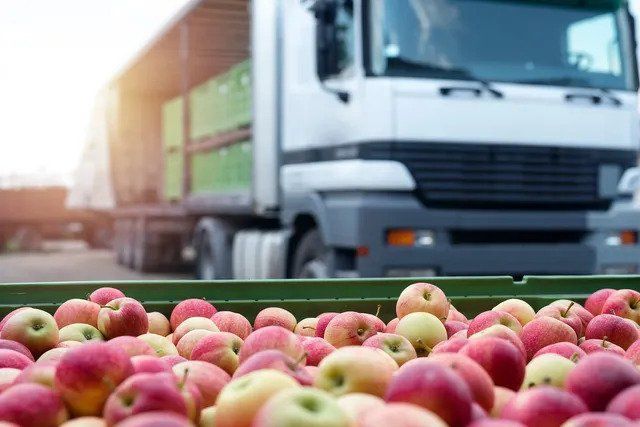BY:
SHARE:

Several mistakes frequently occur when handling common user charge invoices, leading to processing delays and potential complications. This guide highlights three of the most common errors and provides practical solutions to help you resolve them quickly and efficiently.
Low-risk Plants & Plant Products goods and medium-risk B P&PP goods must not be notified in IPAFFS,
If such products are notified in error, a charge will still be made, as detailed further down this article.
The definition of plants means living plants and the following living parts of plants: (a) seeds, in the botanical sense, other than those not intended for planting; (b) fruits, in the botanical sense; (c) vegetables; (d) tubers, corms, bulbs, rhizomes, roots, rootstocks, stolons; (e) shoots, stems, runners; (f) cut flowers; (g) branches with or without foliage; (h) cut trees retaining foliage; (i) leaves, foliage; (j) plant tissue cultures, including cell cultures, germplasm, meristems, chimeric clones, micro-propagated material; (k) live pollen and spores; (l) buds, budwood, cuttings, scions, grafts.
To establish the risk for your plant products, see the link below:
BTOM risk categorisations - UK Plant Health Information Portal (defra.gov.uk).
Traders must note that:
- High and medium-risk A goods will require a phytosanitary certificate and pre-notification (CHED PP) to be made on IPAFFS.
- Medium-risk B goods will require a phytosanitary certificate but will not need to be pre-notified.
- Low-risk goods do not require a phytosanitary certificate or pre-notification (CHED PP) to be made on IPAFFS.
- If you submit a notification on IPAFFS for medium-risk B and low-risk plants and plant products, you will be charged the common user charge of £29 for each commodity line up to the limit of 5 commodity lines per CHED.
A temporary easement is in place for some fruit and vegetables from the European Union, Liechtenstein, and Switzerland. These are medium-risk but are currently being treated as low-risk and, therefore, do not require notification on IPAFFS. Full guidance is available on gov.uk on both the common user charge page and the BTOM risk categorisations page.
Inaccurate details being inputted into IPAFFS
- Agents are incorrectly notifying imports as Transit, where the charge is £10 when it is an Import, where the charge is £29.
- The Notifier (which can be the importer or their agent) should check that they are selecting the correct import classification. Otherwise, this will be identified, and the correct charge will be applied.
2. There are duplicate notifications for the same import by agents and businesses.
- Agents representing businesses and businesses using an agent should clearly communicate with each other as to who will raise the notification to avoid duplication and double charges.
3. Check your IPAFFS prenotifications after submission for any duplications
- Check your IPAFFS prenotifications after submission to ensure they are correct and there are no duplications, which will incur common user charges. Please remember that you can amend/cancel the prenotification before it is locked, which is up to 2 hours before the arrival of the goods.
Advice and support from DEFRA
Shared Services Connected Limited manages all submissions. You should contact SSCL to request information about or query your common user charge invoice.
- If you want an existing invoice sent to an updated billing details address, you must contact SSCL to request this.
- If you want to request invoice content in Excel format, then you can contact SSCL to request this.
Contact details for SSCL:
- Phone: 01633 631800
- Email: SSCL.invoicing@gov.sscl.com
In every contact with SSCL, you must quote the organisation name, customer number and invoice number for the relevant invoice you wish to discuss. It is important to note that only the organisation named on the invoice can discuss or query an invoice or seek support, but any organisation can pay the invoice if they have the organisation name, customer number and invoice number.
Further information
Detailed guidance on common user charge invoices and payments can be found on GOV.UK.
A recording of the DEFRA webinar on common user charge invoicing is available here.
OneCall™ Email assistance as and when required; A one-call solution for all your import, export and customs enquiries. Export help. Import help. Customs help.
Stay informed about customs and international trade matters by subscribing to our OneCall™ service. This comprehensive offering includes a dedicated email helpline for support, timely practical updates direct to your inbox (Did You Know?), monthly UK Customs & Trade Briefings and access to an interactive members' area with an exclusive community for our subscribers.
International Trade Updates & Spotlight Newsletter
Subscribe to our free information emails covering international trade topics...
MORE INDUSTRY INSIGHTS...












